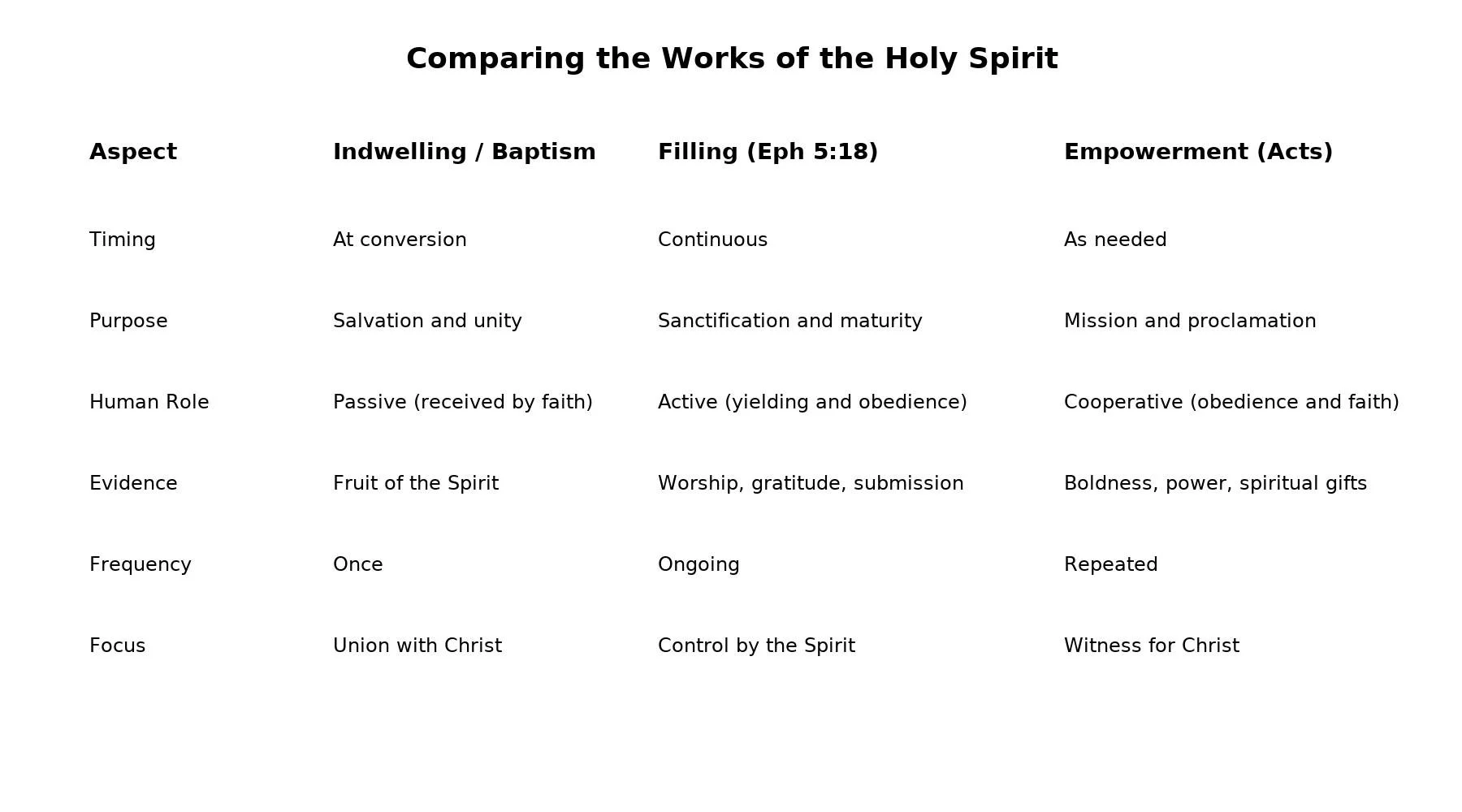When the Spirit Fills (Part 1): Rediscovering the Power Beyond the Phenomenon
Understanding the difference between the Spirit’s indwelling, the command to be filled, and the power behind both.
The Spirit’s Work — More Than a Moment
Few topics have shaped modern Pentecostal theology more than the baptism and filling of the Holy Spirit. For over a century, the Assemblies of God and other Spirit-led movements have emphasized the supernatural power of the Spirit as both the fuel and fire of the Christian life. Yet somewhere along the way, the focus on how the Spirit manifests began to overshadow why He came in the first place.
At the heart of this discussion lies a biblical distinction — one that Paul himself makes clear. There is a difference between the initial indwelling of the Spirit at salvation and the ongoing filling of the Spirit commanded to every believer.
1. The Indwelling: The Spirit We Receive at Salvation
From the moment we place our faith in Christ, the Holy Spirit takes up residence within us. Paul wrote, “If anyone does not have the Spirit of Christ, they do not belong to Christ” (Romans 8:9). The Spirit is not a later upgrade or spiritual add-on; He is the seal of our salvation (Ephesians 1:13–14).
This indwelling — sometimes called the baptism of the Spirit — is a once-for-all event. In 1 Corinthians 12:13, Paul declares, “For we were all baptized by one Spirit so as to form one body.” Every believer, without exception, participates in this reality. It’s how we are united with Christ and with one another.
The Christian life begins already filled with divine presence. The Spirit is not waiting for a future invitation to move in. He’s already there — regenerating, guiding, and sanctifying us from within.
2. The Filling: The Spirit Who Continually Empowers
Paul’s words in Ephesians 5:18 shift the focus from possession of the Spirit to submission to Him:
“Do not get drunk with wine… but be filled with the Spirit.”
The Greek word plērousthe literally means “keep on being filled.” This isn’t about receiving more of the Spirit; it’s about the Spirit receiving more of us. It’s not a one-time ecstatic event — it’s a daily posture of surrender.
Paul’s evidence for being filled is remarkably practical:
Worship and thanksgiving (Eph 5:19–20)
Mutual submission and humility (Eph 5:21)
Spirit-led relationships at home and in the world (Eph 5:22–6:9)
Being filled with the Spirit looks less like spectacle and more like spiritual maturity. The fruit of the Spirit — love, joy, peace, patience, kindness, goodness, faithfulness, gentleness, self-control (Gal 5:22–23) — reveals who truly walks in the Spirit’s fullness.
3. Empowerment: The Spirit Who Sends
Before His ascension, Jesus promised His followers,
“You will receive power when the Holy Spirit comes on you, and you will be my witnesses” (Acts 1:8).
That word power (dunamis) means dynamic, explosive energy. When the Spirit fills, He empowers ordinary people for extraordinary mission. This pattern unfolds throughout Acts:
Acts 2: The disciples are filled, speak in other tongues, and preach boldly.
Acts 4: The believers are filled again, and the place shakes as they proclaim the Word with courage.
Acts 13: Paul is filled and speaks powerfully against opposition.
Sometimes tongues accompanied this empowerment — but not always. The consistent mark of Spirit-filling in Acts is boldness for witness, not tongues alone.
4. Comparing the Three Works of the Spirit
A Comparison Chart Showing the Works of the Holy Spirit
Conclusion: Living Beyond the Moment
The Holy Spirit’s presence in a believer’s life is not limited to one encounter or emotional experience.
He indwells us to make us new, fills us to make us faithful, and empowers us to make us fruitful.
In this first part, we’ve explored the biblical foundation — what the Spirit’s indwelling and filling truly mean. But understanding is only the beginning.
In Part 2, we’ll look at how this theology plays out in real life — especially within Pentecostal and Assemblies of God traditions — and explore the dangers of reducing the Holy Spirit’s work to one manifestation like speaking in tongues or prophecy.
More importantly, we’ll rediscover how to cultivate a Spirit-filled life that reflects character, not just charisma; fruit, not just fire.

